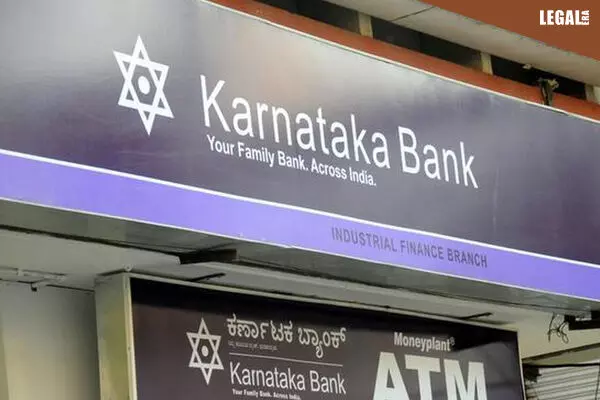- Home
- News
- Articles+
- Aerospace
- Agriculture
- Alternate Dispute Resolution
- Banking and Finance
- Bankruptcy
- Book Review
- Bribery & Corruption
- Commercial Litigation
- Competition Law
- Conference Reports
- Consumer Products
- Contract
- Corporate Governance
- Corporate Law
- Covid-19
- Cryptocurrency
- Cybersecurity
- Data Protection
- Defence
- Digital Economy
- E-commerce
- Employment Law
- Energy and Natural Resources
- Entertainment and Sports Law
- Environmental Law
- FDI
- Food and Beverage
- Health Care
- IBC Diaries
- Insurance Law
- Intellectual Property
- International Law
- Know the Law
- Labour Laws
- Litigation
- Litigation Funding
- Manufacturing
- Mergers & Acquisitions
- NFTs
- Privacy
- Private Equity
- Project Finance
- Real Estate
- Risk and Compliance
- Technology Media and Telecom
- Tributes
- Zoom In
- Take On Board
- In Focus
- Law & Policy and Regulation
- IP & Tech Era
- Viewpoint
- Arbitration & Mediation
- Tax
- Student Corner
- AI
- ESG
- Gaming
- Inclusion & Diversity
- Law Firms
- In-House
- Rankings
- E-Magazine
- Legal Era TV
- Events
- News
- Articles
- Aerospace
- Agriculture
- Alternate Dispute Resolution
- Banking and Finance
- Bankruptcy
- Book Review
- Bribery & Corruption
- Commercial Litigation
- Competition Law
- Conference Reports
- Consumer Products
- Contract
- Corporate Governance
- Corporate Law
- Covid-19
- Cryptocurrency
- Cybersecurity
- Data Protection
- Defence
- Digital Economy
- E-commerce
- Employment Law
- Energy and Natural Resources
- Entertainment and Sports Law
- Environmental Law
- FDI
- Food and Beverage
- Health Care
- IBC Diaries
- Insurance Law
- Intellectual Property
- International Law
- Know the Law
- Labour Laws
- Litigation
- Litigation Funding
- Manufacturing
- Mergers & Acquisitions
- NFTs
- Privacy
- Private Equity
- Project Finance
- Real Estate
- Risk and Compliance
- Technology Media and Telecom
- Tributes
- Zoom In
- Take On Board
- In Focus
- Law & Policy and Regulation
- IP & Tech Era
- Viewpoint
- Arbitration & Mediation
- Tax
- Student Corner
- AI
- ESG
- Gaming
- Inclusion & Diversity
- Law Firms
- In-House
- Rankings
- E-Magazine
- Legal Era TV
- Events
Consumer forum orders Karnataka Bank to allow the customer to operate the account

Consumer forum orders Karnataka Bank to allow the customer to operate the account
The judgment will have a far-reaching impact because the police do not assess or investigate fraudulent activities properly
The Nagpur District Consumer Disputes Redressal Commission (CDRC) has in a significant ruling ordered the Karnataka Bank to allow a complainant to operate his bank account by putting on hold only Rs10,000 until further orders.
The case highlights the disadvantages of digital transactions, wherein the recipient is supposed to verify the identity and genuineness of the transferer or else face a hold on his bank account irrespective of the amount involved in the suspicious transaction.
In an ex-parte interim July 15 order, the bench of Sanjay Vasudeo Patil (president) and Chandrika Bais and Subhash Ajne (members), stated, "The respondent-bank is directed to put a hold on the amount of Rs10,000 till further order and shall allow the complainant to operate the account in respect of remaining amount in the account."
The complainant, Ramanuj Satyanarayan, a company secretary by profession, received a payment of Rs1.99 lakh on 2 June in his bank account for professional services provided to a client. However, the next day, the bank prevented him from withdrawing the amount credited into his account.
He was informed that the account through which he had received the money was reported as involved in suspicious transactions. However, while the Telangana Police asked the bank to hold only Rs.10,000, the bank put the entire payment received from his client, on hold.
The bank further asked the account holder to either bring an order from a court or directions from the police to remove the hold on the transaction. The police, meanwhile, refused to cooperate.
The account holder then approached the Commission through advocate Dr. Mahendra Limaye. The Commission's directions to the bank came thereafter.
Dr. Limaye stated, "The judgment will have far-reaching impacts because it has been observed that the police tend to put on hold all the subsequent beneficiaries without assessing or investigating their role in the fraudulent activities reported to them."
He added, "In the digitalized online payment mechanism, it is practically impossible for the beneficiary to verify the transferer's identity. This lacuna is putting genuine bank account-holders to run from pillar to post."



